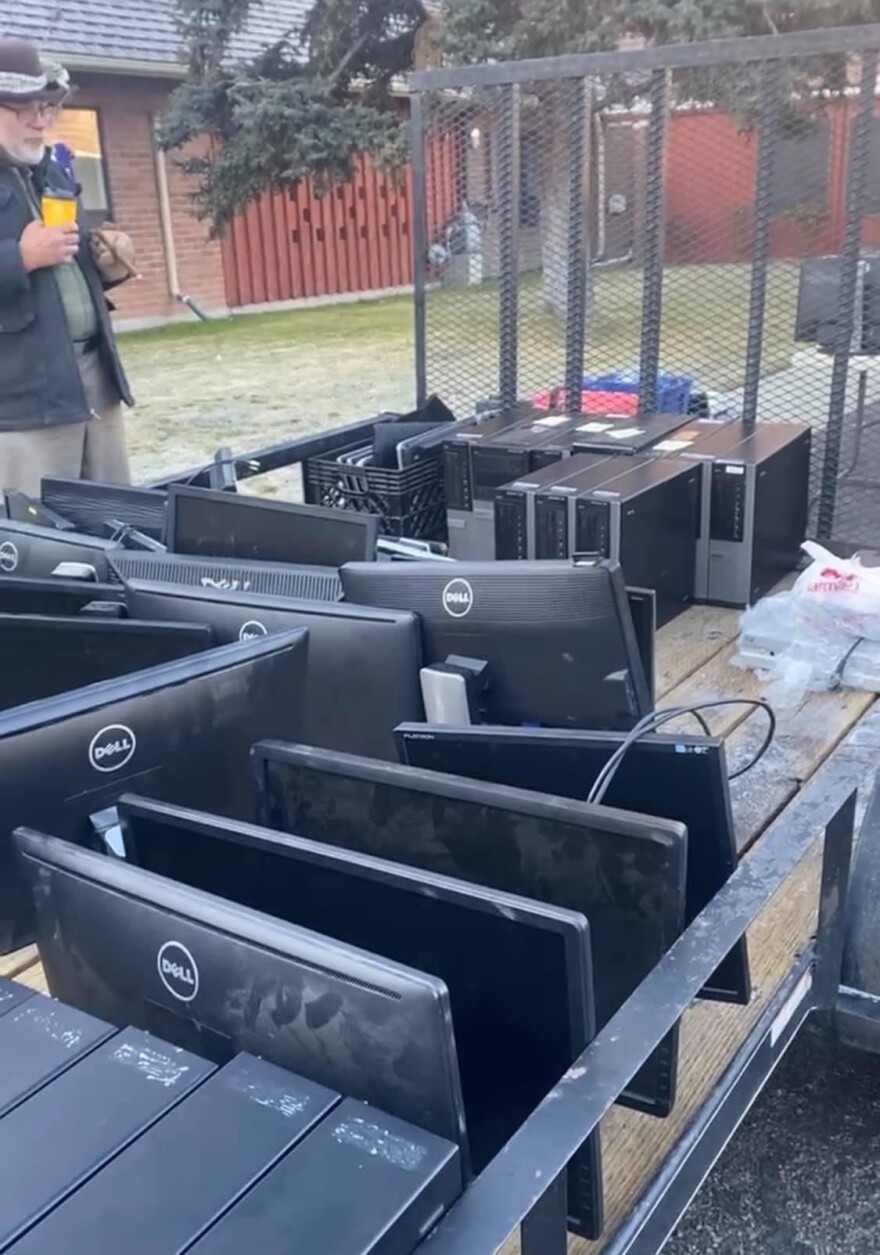As the COVID-19 pandemic continues, coronavirus information in Spanish persists as an unmet need for Spanish speakers in Northern Nevada.
To help address this, María Davis, a professional interpreter, volunteers her time answering community questions and sharing COVID-19 updates in Spanish on Facebook.
KUNR reporter Natalie Van Hoozer spoke with Davis to learn more.
Natalie Van Hoozer: María, at the beginning of the pandemic, the Regional Information Center hired you to do Latino community outreach. That funding ended, but you’re still volunteering to get COVID-19 information to the Spanish-speaking community. How did this volunteer work come about?
María Davis: When my contract ended, the people already knew me, knew what I was doing, and I still was the go-to person for any questions that they had, or anything really that had to do with this crisis. There was no way that I was going to turn them away. I got to see the impact that this virus was having on people that were struggling because they had no job.
I speak Spanish, so of course, I am in closer contact with the people out there who are the most vulnerable, the ones that are the essential workers, the ones that are undocumented and are not receiving the same attention.
Van Hoozer: What types of questions are you answering?
Davis: I'm still the person who receives a lot of phone calls and text messages for questions like: Do you know where the testing is? Do you know anything about if I can go to work? Is anyone going to pay for my days that I'm losing from work? Those kinds of questions.

Van Hoozer: Could you explain your nonprofit program called “Mi Motivo” or in English, “My Reason”?
Davis: “Mi Motivo” is a Facebook page about raising awareness about wearing a face mask, following social distancing, whatever directives come from the governor and whatever information has to do with COVID.
Van Hoozer: As part of the “Mi Motivo” project, you also fundraise to buy students laptops for distance learning. Can you tell me more about that?
Davis: With the schools, I started a laptop drive. We give [laptops] out to families that are in need. Going to distance learning for a few days whenever we have cases, we have some families that don't have access to that. The goal is to not leave any children outside of getting education because they're not able to access it.

Van Hoozer: Why are you committed to this work, what you’re doing on a volunteer basis when you have a full-time job?
Davis: I believe that we're in this together, there's our children... I have three kids, so it's simple, it's just so that as adults, we can provide a better future for our kids. I speak Spanish, I come from Mexico, I'm an immigrant. I've been through some of the things that a lot of people are going through, so I understand and it pains me when I see these things still happening.
Van Hoozer: What are some of the most pressing needs that you’re seeing from the community members you’re working with?
Davis: A lot of these people, they're being taken advantage of at work, because many of them cannot say anything because their employers might know their [immigration] status, yet they look the other way because they want cheap labor. We see other people that will do whatever it is they have to do to be at work because, if not, if they lose that job. How are they going to get another job? I think that the pandemic has really uncovered all of these things that society did not want to see, and we should take care of each other.
Davis runs a laptop donation program in partnership with the Reno Cigar Lions Club. To request a donated laptop for your child's schoolwork, call or text in English or Spanish to the phone number: 775-453-0307.
This story was produced in partnership with Noticiero Móvil.








